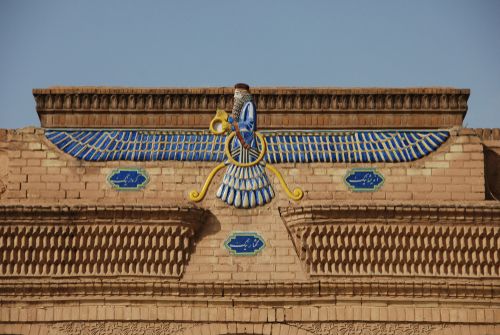 Iran has a tough and mysterious reputation as an Islamic country with little tolerance for outsiders. However, watching the Zoroastrian population of Iran celebrate Sadeh this week tells a different story. With joyous gatherings, bonfires, and festivities, Zoroastrians in various cities across the country mark the end of the coldest winter days. A vital cultural event for many Iranians, here's a deeper look into Sadeh and Zoroastrianism.
Iran has a tough and mysterious reputation as an Islamic country with little tolerance for outsiders. However, watching the Zoroastrian population of Iran celebrate Sadeh this week tells a different story. With joyous gatherings, bonfires, and festivities, Zoroastrians in various cities across the country mark the end of the coldest winter days. A vital cultural event for many Iranians, here's a deeper look into Sadeh and Zoroastrianism.
What Is Zoroastrianism?
Zoroastrianism is one of the world's oldest monotheistic religions, and it predates both Christianity and Islam. The prophet Zoroaster founded this spiritual movement around 3,800 years ago. Zoroastrians believe in the existence of one supreme deity, Ahura Mazda, and emphasize the importance of good deeds, truthfulness, and the battle between good and evil.
Iran is home to a significant population of Zoroastrians, although they are a minority within the predominantly Shiite Muslim country. While exact numbers are difficult to determine, estimates suggest that there are tens of thousands of Zoroastrians in Iran.
Outside of Iran, India has the highest population of Zoroastrians, particularly in the state of Gujarat. North America also has a significant amount of people who identify as Zoroastrian, and the total global population estimate is upwards of 115,000.
What Is the History of Sadeh?
Sadeh, meaning "the one hundred," is an ancient festival that marks the end of winter and the anticipation of spring. The tradition dates back to the time when Zoroastrianism was the dominant religion in the Persian empire. Despite centuries of political and social changes, Sadeh has endured as a cherished tradition among Zoroastrians.
How Do Zoroastrians Celebrate Sadeh?
Every year on January 30th, Zoroastrians gather after sunset to celebrate Sadeh. A central aspect of the festivities is the lighting of bonfires, which symbolize the defeat of darkness and the triumph of light. Zoroastrian priests and priestesses, dressed in white, lead the ceremonies. Attendees gather around the bonfires to enjoy music, theological lectures, and communal meals.
In some cities, including Tehran, the Sadeh celebrations are open to the public, with attendees from diverse religious backgrounds joining in the festivities. This year, the Islamic Republic's air force band participated in the Sadeh celebrations, which is a very rare occurrence. The band played the national anthem and other tunes to the delight of the attendees.
How Does Iran Treat Zoroastrians?
Despite being a minority in Iran, Zoroastrians enjoy certain rights and protections under the country's constitution. They have one representative in parliament, reflecting Iran's commitment to religious diversity. However, Zoroastrians, along with other religious minorities, have faced challenges and discrimination over the years.
How Does Sadeh Compare to Nowruz?
While both Sadeh and Nowruz are celebrated by Iranians, there are many differences between them. Nowruz, which marks the Persian New Year, is a secular holiday celebrated by people of various faiths and ethnicities across Iran and other countries in the region. It signifies the arrival of spring and the beginning of the new year on the Iranian calendar and is typically celebrated during the second half of March.
Despite their differences, both Sadeh and Nowruz share common elements such as the lighting of fires and communal gatherings. Both festivals serve as occasions for families and communities to come together, celebrate traditions, and embrace the spirit of hope and renewal that accompanies the arrival of spring.
As followers of this ancient faith come together to mark the end of winter and the arrival of spring, they celebrate not only their religious beliefs but also their cultural identity. Sadeh serves as a reminder of the resilience of Zoroastrian traditions in the face of historical and social changes, and it continues to be a cherished festival for Zoroastrians in Iran and beyond.



